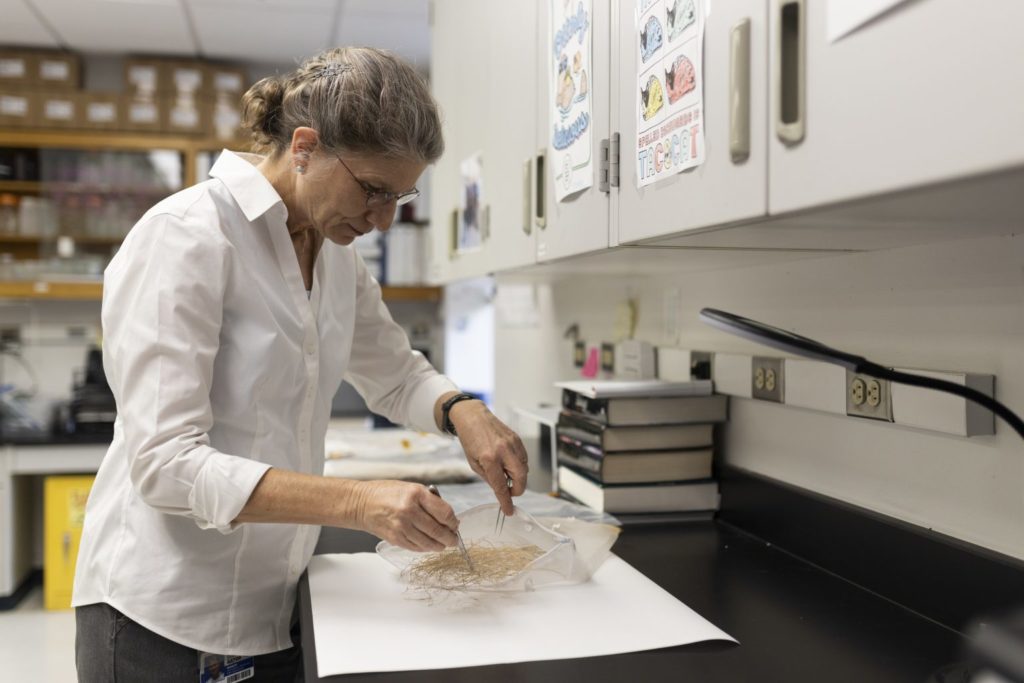
ET may have phoned home, but plants from a University of Florida Institute of Food and Agricultural Sciences (UF/IFAS) experiment were recently flown home from the International Space Station (ISS).
Plants, specifically Arabidopsis thaliana, grown from seeds by astronauts in the ISS were harvested, launched on a return capsule that touched down to Earth and shipped to eager researchers at UF/IFAS’ Space Plants Lab, including Anna-Lisa Paul and Robert Ferl.
This latest experiment focuses on whether genetic strategies make plants hardier and more adaptable to the spaceflight environment, and if Arabidopsis plants pass along these strategies to their offspring. This would make them better suited to grow in space, said Paul, the principal investigator for the experiment, UF/IFAS horticultural sciences professor and the director of the Interdisciplinary Center for Biotechnology Research. The study could enable researchers to understand how all plants respond to space travel.
“Consider the food we might grow, and the plants we would use to clean our air. All might be better suited if we allow them to grow a generation in space first before relying on them for food and life support,” she said. “If we learn that plants can be ‘trained’ to be in a space flight environment, we can expect plants can grow better adjusted to space as the generations go on.”
Timeline of Events
The timeline from seed to return to UF/IFAS is as follows: Plants were launched as seeds in May, produced in July, harvested in the fall, landed on Earth in December and arrived back to the researchers in January.
The seeds sent to the ISS in May were from plants previously grown on the space station, making them second-generation space-grown plants.
The project focuses on epigenetics – the study of how the environment can cause changes in how existing genes in a living organism can be turned “on,” or “off” from stress – and how space travel affects that process. A previous study done by Paul and Ferl showed that spaceflight-associated changes in gene expression can be the result of epigenetics. This study will determine whether any of those epigenetic changes are transferred to the next generation.









